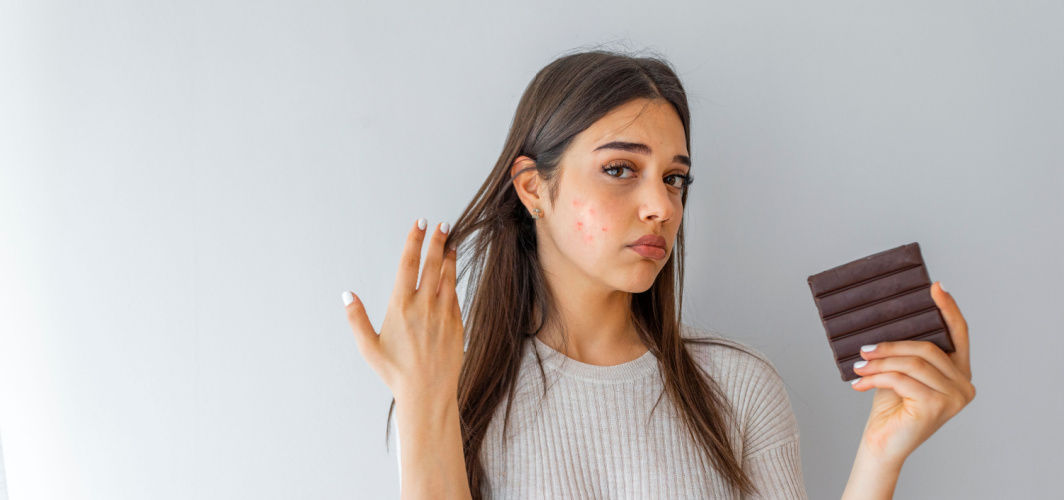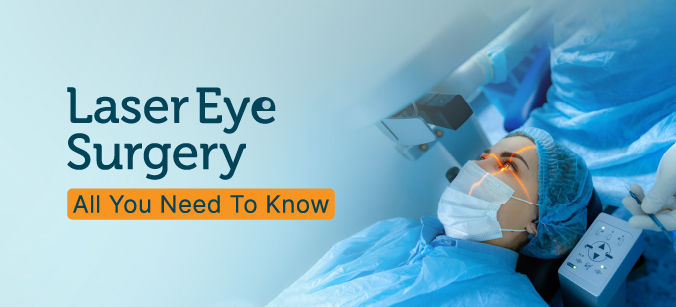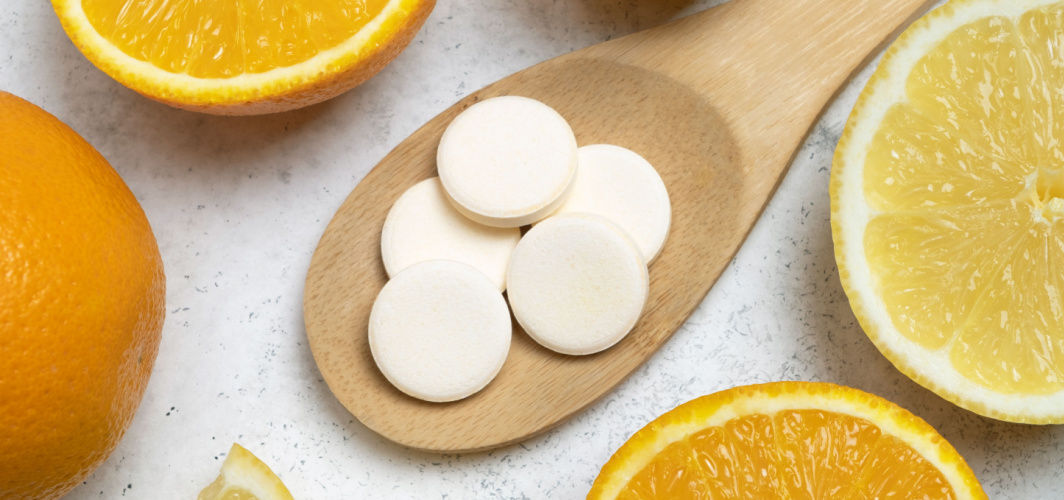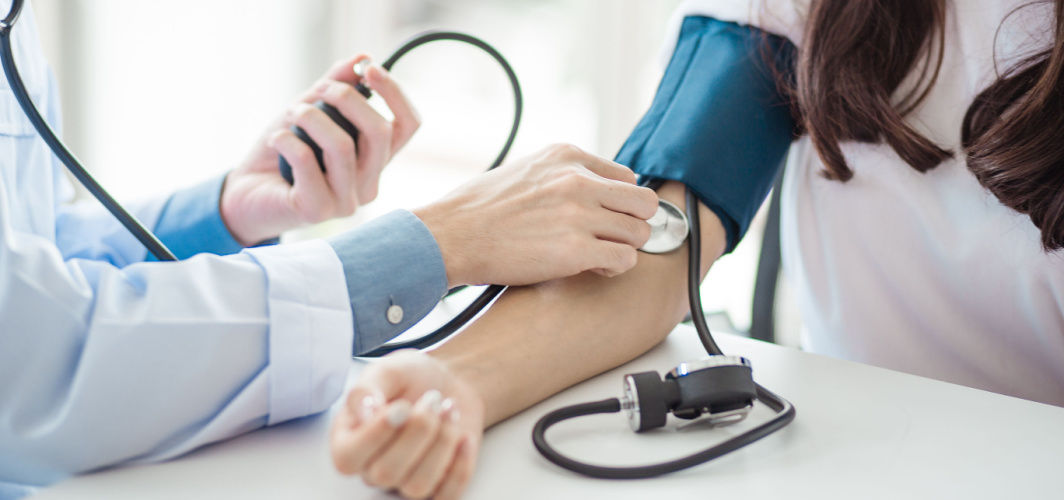General Health
Can Your Diet Prevent Acne?
6 min read
By Apollo Pharmacy, Published on - 11 September 2023
Share this article
0
0 like

Acne is a common skin condition that affects individuals of all ages, causing frustration and self-consciousness. It is characterised by pimples, blackheads, and whiteheads, which can be painful and leave behind scars. While hormonal changes and genetics play a significant role in the development of acne, recent studies have shown that diet may also contribute to its formation. Research suggests that certain foods may trigger or worsen acne breakouts and can be helpful in understanding how to get rid of pimples. In this article, we will explore the relationship between and acne, as well as dietary choices that can promote clear and healthy skin.
How is Acne Connected to Diet?
When it comes to acne, your diet plays a crucial role. Certain foods can influence hormone levels and inflammation, leading to acne flare-ups. Understanding the science behind this connection can help you make informed choices about your diet and skincare routine.
1. Antioxidant-rich Foods
Eating a diet rich in fruits, vegetables, and whole grains provides antioxidants that can help protect the skin from oxidative stress and inflammation.
2. Fast Food
Fast food or junk food is often high in unhealthy fats, refined carbohydrates, and added sugars, which can increase inflammation and promote acne formation.
3. Omega-3 Fatty Acids
Incorporating omega-3 fatty acids such as fish oil into your diet may have a positive impact on skin health. It helps reduce inflammation, which is associated with acne development. Side effects may include bad breath and headache.
Foods to Include in Your Diet for Clear Skin
Maintaining a healthy diet is important for overall well-being and can contribute to clear and acne-free skin. Including anti-inflammatory foods in your diet can help reduce inflammation and prevent breakouts.
1. Fruits and Vegetables
Brightly coloured fruits and vegetables, especially those rich in antioxidants, can help fight inflammation and promote healthy skin. They include:
- Berries
- Leafy greens
- Tomatoes
- Bell peppers
2. Whole Grains and Legumes
Opt for whole grains as these are low on the glycemic index. Such as:
- Brown rice
- Quinoa
- Whole wheat bread
Legumes such as lentils and chickpeas are packed with protein and fibre, promoting steady blood sugar levels.
3. Healthy Fats
Incorporate healthy fats into your diet, which support skin health and reduce inflammation. Some great sources of healthy fats are:
- Avocados
- Nuts ( like almonds and walnuts)
- Seeds (such as flaxseeds and chia seeds)
Foods to Limit or Avoid to Prevent Acne Flare-Ups
Wondering how to get rid of pimples ? Here are some foods you should limit or avoid to prevent acne flare-ups:
1. High-glycemic Index Foods
- Refined carbohydrates: Foods like white bread, pasta, and white rice have a high glycemic index, meaning they cause a rapid spike in blood sugar levels. This spike triggers the release of insulin, which in turn stimulates oil production and clogs pores, leading to acne breakouts.
- Processed foods with added sugar: Foods like cookies, cakes, sodas, and sweetened beverages are not only high in refined carbohydrates but also contain added sugars. They can worsen inflammation and increase sebum production, contributing to the development of acne.
2. Dairy Products
Studies have suggested a potential link between dairy consumption and acne development. The hormones present in cow's milk, such as insulin-like growth factor 1 (IGF-1), have been implicated in increasing sebum production and stimulating the growth of skin cells. This can lead to clogged pores and the formation of acne.
Fortunately, there are plenty of milk alternatives available that can be incorporated into your diet. They include:
- Soy Milk
- Almond Milk
- Coconut Milk
These alternatives provide essential nutrients without the hormones found in cow's milk. Additionally, they contain antioxidants and anti-inflammatory compounds that can help promote healthy skin.
Seeking Professional Advice for Severe Acne Cases
When it comes to severe acne, seeking professional advice is crucial for effective management. Certain cases of acne may require the expertise of a dermatologist or nutritionist.
1. When to Consult a Dermatologist or Nutritionist
If your acne is severe, persistent, or causing emotional distress, it's essential to consult a dermatologist.
- A dermatologist can assess your skin condition and determine the best course of treatment.
- A nutritionist can help identify any dietary factors contributing to acne and provide guidance on dietary modifications.
2. Medical treatments for Severe Acne
- Topical medications and creams: Dermatologists often prescribe topical medications like retinoids, benzoyl peroxide, or antibiotics. These treatments target inflammation and bacterial growth, helping to clear acne lesions.
- Oral medications and hormonal therapies: In severe cases, oral medications such as antibiotics or isotretinoin may be recommended. Hormonal therapies like oral contraceptives or spironolactone can be beneficial for hormonal acne in females.
Conclusion
The connection between diet and acne is a complex one. Research suggests that certain dietary factors may influence the development and severity of breakouts, and can help understand how to get rid of pimples. It is important to remember that everyone's skin is unique, and what works for one person may not work for another. By taking a holistic approach to skincare, focusing on both internal and external factors, you can empower yourself to achieve clear and glowing skin. So why wait? Start making healthier choices today and say goodbye to pesky pimples!
While a clean diet is necessary to prevent acne, it is equally important to have proper skincare routine.
FAQs
Q. Can certain foods help prevent breakouts?
Yes, some foods have been found to have acne-fighting properties. Omega-3 fatty acids found in fatty fish like salmon and mackerel have anti-inflammatory effects that can help reduce acne. Antioxidant-rich foods like berries, leafy greens, and green tea can also promote skin health and reduce inflammation.
Q. Should I eliminate all dairy from my diet to prevent acne?
There is no one-size-fits-all answer to this question. While some studies suggest that dairy consumption may worsen acne for some individuals, others may not experience any adverse effects. It's best to pay attention to your own body's response to dairy products. If you notice that your skin breaks out after consuming dairy, you may consider reducing or eliminating it from your diet.
Q. Are there any specific vitamins or supplements that can help improve acne?
Vitamin A, zinc, and omega-3 fatty acids are commonly recommended for their potential benefits. However, consulting with a healthcare professional before starting any supplements is important.
Q. Can drinking water help prevent acne?
Yes, proper hydration helps remove toxins and can aid in reducing acne inflammation.
Q. Can certain foods actually make acne worse?
Yes, some studies have found that high-glycemic index foods like white bread, pasta, sugary drinks, and sweets can exacerbate acne. Dairy products may also play a role in acne development, particularly skim milk.
General Health
Consult Top Dermatologists
View AllLeave Comment
Recommended for you

General Health
How Does Laser Eye Surgery Work?
No matter how pretty the view or how perfect the lighting is, the world always seems a little out of focus for those with eye problems. And this is exactly what laser eye surgery solves. Much like how you manually adjust the camera lens to bring a picture to focus, laser surgically adjusts your eye lens to bring the view to focus.

General Health
Can Supplements Help Treat Vitamin C Deficiency?
Explore Vitamin C deficiency, its effects, and how Vitamin C tablets offer a solution for enhanced health and well-being.

General Health
Can Strength Training Manage High Blood Pressure?
According to a recent study, it has been noticed that strength exercises can be effective in improving your blood pressure. It can further help in reducing the risk of acquiring cardiovascular diseases like arterial hypertension by improving your heart rate and efficiency.
Subscribe
Sign up for our free Health Library Daily Newsletter
Get doctor-approved health tips, news, and more.
Visual Stories

Science-backed Home Remedies for Burns and Blisters
Tap to continue exploring
Recommended for you

General Health
How Does Laser Eye Surgery Work?
No matter how pretty the view or how perfect the lighting is, the world always seems a little out of focus for those with eye problems. And this is exactly what laser eye surgery solves. Much like how you manually adjust the camera lens to bring a picture to focus, laser surgically adjusts your eye lens to bring the view to focus.

General Health
Can Supplements Help Treat Vitamin C Deficiency?
Explore Vitamin C deficiency, its effects, and how Vitamin C tablets offer a solution for enhanced health and well-being.

General Health
Can Strength Training Manage High Blood Pressure?
According to a recent study, it has been noticed that strength exercises can be effective in improving your blood pressure. It can further help in reducing the risk of acquiring cardiovascular diseases like arterial hypertension by improving your heart rate and efficiency.